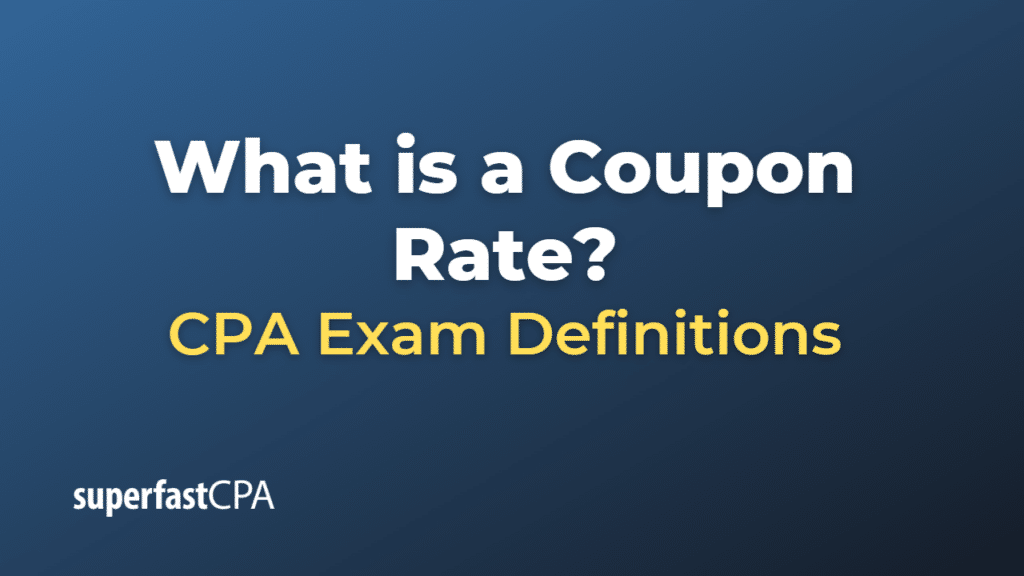Coupon Rate
The coupon rate is the annual interest rate paid by a bond issuer to its bondholders. It’s typically expressed as a percentage of the bond’s face value.
The term “coupon rate” comes from the practice of issuing bonds with coupons that were clipped and redeemed for the annual interest payments. Although most bonds are now issued electronically and don’t have physical coupons, the term persists and is also sometimes referred to as the “nominal rate,” “nominal yield,” or “interest rate.
For instance, if a bond has a face value of $1,000 and a coupon rate of 5%, the issuer promises to pay the bondholders $50 per year until the bond matures. The payment is usually divided into semi-annual payments, so the bondholder would receive $25 every six months in this case.
It’s important to note that the coupon rate is fixed when the bond is issued and does not change if the price of the bond changes in the secondary market. This means that the actual yield of the bond (the yield to maturity) can be higher or lower than the coupon rate, depending on whether the bond is trading at a premium or discount to its face value.
Example of a Coupon Rate
Let’s say you purchase a bond with a face value of $10,000. The bond has a coupon rate of 4%, and it will mature in 5 years. This means that the bond will pay you interest of 4% per year on the face value, which is $400 per year.
Typically, bonds pay interest semi-annually, so you would receive two payments per year, each for half of the annual interest. In this case, you would receive two payments of $200 each, for a total of $400 per year.
The total interest you would receive over the life of the bond (5 years) would be $2,000 ($400 * 5). This is in addition to the return of the face value of the bond ($10,000) when it matures.
Please note that this is a simplified example and assumes that the bond is held to maturity and the issuer does not default. In reality, the price of a bond can fluctuate in the secondary market, which can affect the yield to maturity, but it does not change the coupon rate.













